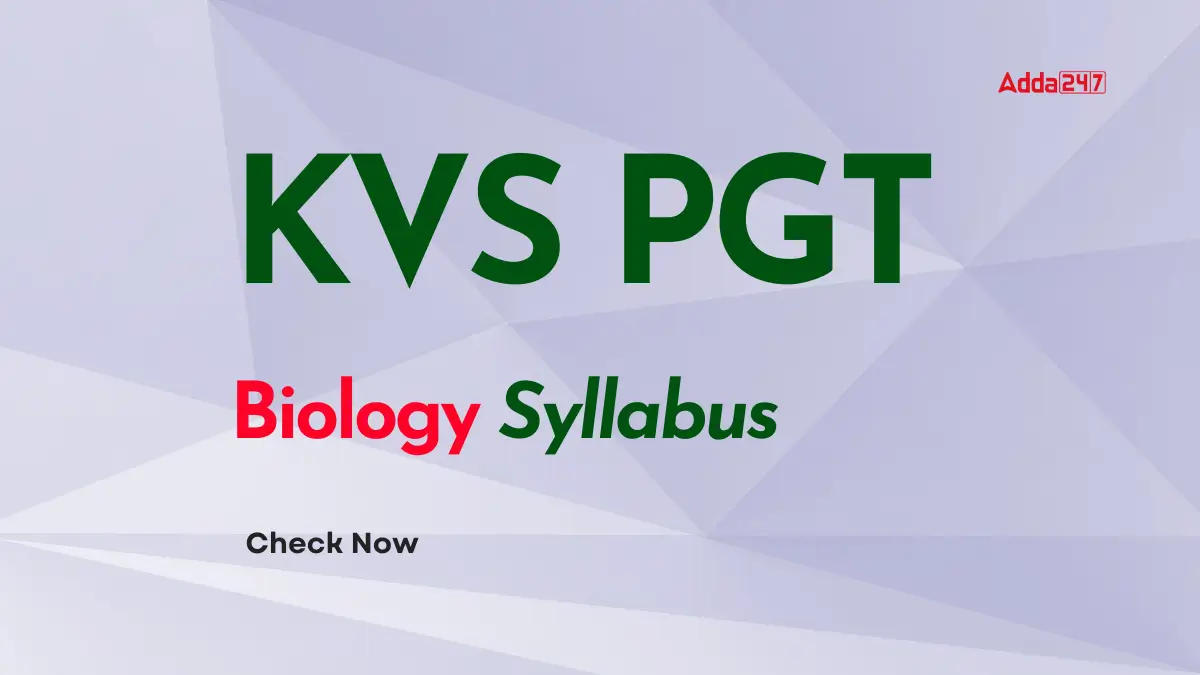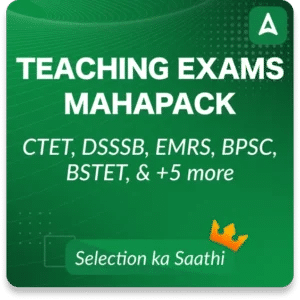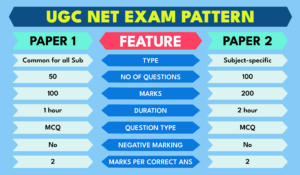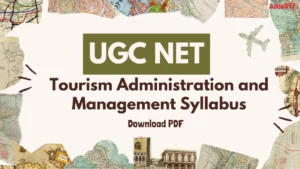Table of Contents
The KVS PGT Biology Syllabus 2025 has been officially published on the Kendriya Vidyalaya Sangathan (KVS) website. This comprehensive syllabus is designed to assess a candidate’s expertise in Biology, along with their language proficiency, teaching aptitude, and overall eligibility for the Post Graduate Teacher (PGT) position. It focuses on evaluating the core competencies necessary for effectively teaching Biology at the senior secondary level in Kendriya Vidyalayas. Having a thorough understanding of the syllabus will help candidates plan their preparation strategically, focus on key areas, and significantly boost their chances of success in the examination.
KVS PGT Biology Syllabus
The KVS PGT Biology Syllabus 2025 is structured to assess candidates across four key components: Subject-Specific Knowledge (Biology), General English, General Hindi, and Teaching Aptitude. The Biology section encompasses a wide range of advanced topics such as Diversity of Living World, Cell Biology, Plant and Human Physiology, Genetics and Evolution, Reproduction, Biotechnology, Ecology, and Biology in Human Welfare, all aligned with the senior secondary NCERT curriculum. This well-rounded syllabus is crafted to ensure that aspiring teachers possess both strong subject mastery and essential teaching competencies required to excel as Post Graduate Teachers in Biology at Kendriya Vidyalayas.
KVS Post Graduate Teacher Biology Syllabus: Overview
The KVS PGT Biology Syllabus 2025 highlights the key subjects and topics that aspirants must prepare for the KVS Recruitment Exam 2025 conducted by the Kendriya Vidyalaya Sangathan (KVS). The selection process includes a national-level online written examination followed by an interview, aimed at assessing the candidate’s expertise in Biology and their teaching aptitude. To excel in the exam, it is crucial for candidates to regularly follow official updates and thoroughly understand the latest syllabus. A well-planned and targeted preparation strategy, aligned with the syllabus, can greatly enhance their prospects of qualifying for the PGT Biology post.
| KVS PGT Biology Syllabus | |
| Organization Name | Kendriya Vidyalaya School |
| Conducting Body | Kendriya Vidyalaya Sangathan |
| Post Name | PGT Biology |
| Vacancies | Notified Later |
| KVS Job Profile | National |
| Mode of Application | Online |
| Mode of Examination | Online |
| KVS Selection Process | Written Test & Interview |
KVS PGT Biology Exam Pattern 2025
The KVS PGT Biology Exam Pattern 2025 is designed to evaluate candidates through a structured objective-type format. The exam comprises two papers—Paper I and Paper II—with a total of 180 multiple-choice questions (MCQs). Each question carries 1 mark, making the exam worth 180 marks in total. Candidates are allotted 3 hours (180 minutes) to complete the test. The exam is conducted in a bilingual format (English and Hindi). It assesses candidates’ in-depth knowledge of Biology, as well as their language proficiency, reasoning skills, general awareness, and teaching aptitude. This well-balanced pattern ensures a comprehensive evaluation of the PGT Biology role in Kendriya Vidyalayas.
| KVS PGT Biology Exam Pattern 2025 | |
| Total Marks | 180 marks |
| Total Number of Questions | 180 questions |
| Time Duration | 3 Hours (180 Minutes) |
| Medium of Examination | English/Hindi (Bilingual) |
| Type of Questions | Objective Type Multiple Choice Question |
| Number of Paper | Paper-I and Paper-II |
| PGT Concerned Subject | Biology |
KVS PGT Biology Marks Distribution
The KVS PGT Biology Exam 2025 consists of 180 MCQs for 180 marks, divided into four parts. Part I covers General English and Hindi (10 marks each), Part II includes General Awareness (10), Reasoning (5), and Computer Literacy (5), Part III focuses on Perspectives on Education and Leadership (40 marks), and Part IV tests Biology subject knowledge (100 marks). The exam is bilingual, objective-type, and conducted over 3 hours, ensuring a well-rounded evaluation of candidates.
| KVS PGT Biology Mark 2025 | |||
|---|---|---|---|
| KVS Exam | KVS Subjects | Number Of Ques. | Total Marks |
| PART- I | General English | 10 | 10 |
| General Hindi | 10 | 10 | |
| PART-II |
General Awareness & Current Affairs | 10 | 10 |
| Reasoning Ability | 5 | 5 | |
| Computer Literacy | 5 | 5 | |
| PART-III | Perspectives on Education and Leadership | 40 | 40 |
| PART-IV | Subject Concerned (Biology) | 100 | 100 |
| Total | 180 | 180 | |
Detailed KVS PGT Biology Syllabus 2025
The KVS PGT Biology Syllabus 2025 offers a comprehensive and in-depth framework designed to assess candidates’ expertise in various domains of biological sciences. The syllabus is divided into multiple sections covering both plant and animal biology, ensuring a balanced evaluation of theoretical concepts and practical applications. Key topics include Diversity of the Living World, Structural Organisation in Animals and Plants, Cell Structure and Function, Human and Plant Physiology, Reproduction, Genetics and Evolution, Biology in Human Welfare, Biotechnology, and Ecology and Environment. Designed as per NCERT and CBSE curriculum standards for Classes XI and XII, it ensures candidates are well-prepared to teach senior secondary students effectively.
| Detailed KVS PGT Biology Syllabus 2025 | |
| Unit | Topics |
| Diversity of Living World |
|
| Structural Organisation in Animals and Plants |
|
| Cell Structure and Function |
|
| Plant Physiology |
|
| Human Biology (Physiology and Anatomy) |
|
| Sexual Reproduction |
|
| Genetics and Evolution |
|
| Biology in Human Welfare |
|
| Principles of Biotechnology |
|
| Ecology and Environment |
|
KVS PGT Biology Syllabus PDF
Candidates preparing for the KVS PGT Biology exam can download the complete syllabus in PDF format from the link provided below. The KVS PGT Biology Syllabus PDF includes a detailed subject-wise breakdown, covering all important topics relevant to the subject. This downloadable resource will help aspirants understand the exam pattern, prioritize topics, and plan their preparation effectively. It is advised to save the syllabus PDF for regular reference to ensure a focused and well-organized study strategy throughout the preparation journey.
| KVS PGT Biology Syllabus 2025 | |
| KVS PGT Syllabus 2025 (General Paper) | Click Here |
| KVS PGT Biology Syllabus 2025 | Click Here |
| KVS 2025 Important Links | |
| KVS Vacancy 2025 | KVS Eligibility Criteria 2025 |
| KVS Syllabus 2025 | KVS Previous Year Question Paper |
| KVS Salary 2025 | KVS Selection Process 2025 |




 UGC NET Exam Pattern 2025 for Paper 1 an...
UGC NET Exam Pattern 2025 for Paper 1 an...
 UGC NET Tourism Administration and Manag...
UGC NET Tourism Administration and Manag...
 UGC NET Law Syllabus 2025 and Exam Patte...
UGC NET Law Syllabus 2025 and Exam Patte...














